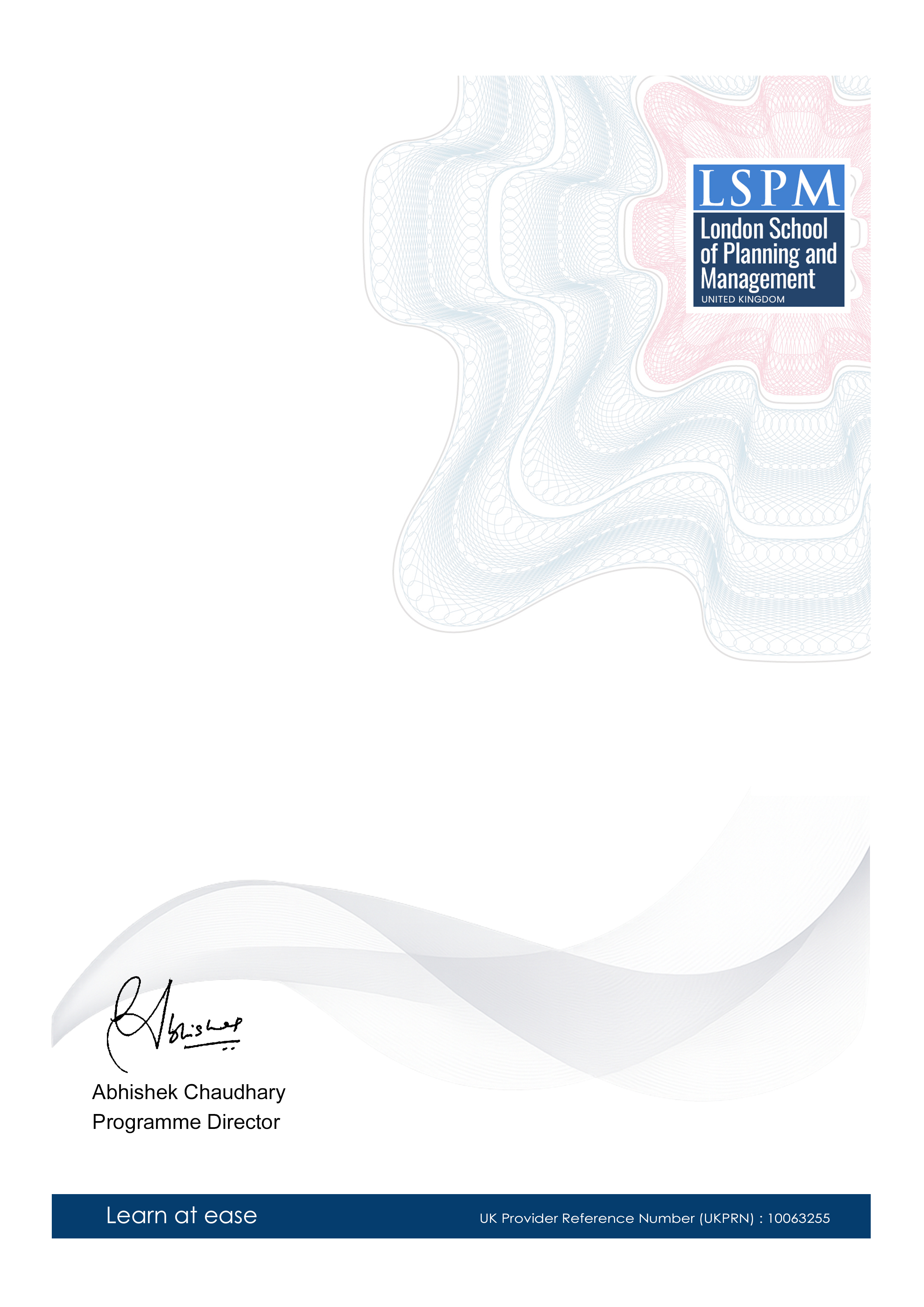Certificate Programme in Sustainable Fisheries Data Collection Methods
-- viewing nowThe Certificate Programme in Sustainable Fisheries Data Collection Methods is a comprehensive course designed to equip learners with the essential skills needed for career advancement in the fisheries industry. This programme emphasizes the importance of sustainable fishing practices, which are crucial for maintaining the health of our oceans and ensuring the long-term viability of the fishing industry.
7,475+
Students enrolled
GBP £ 149
GBP £ 215
Save 44% with our special offer
About this course
100% online
Learn from anywhere
Shareable certificate
Add to your LinkedIn profile
2 months to complete
at 2-3 hours a week
Start anytime
No waiting period
Course details
• Fundamentals of Sustainable Fisheries – Understanding the importance of sustainable fishing practices, the role of data collection methods in preserving fish stocks, and the impact of overfishing on marine ecosystems.
• Data Collection Methods – An overview of various data collection techniques, including fishery-dependent and fishery-independent methods, and their applications in monitoring and managing fish populations.
• Sampling Design – Exploring the principles of random sampling, stratified sampling, and systematic sampling, and their role in creating accurate and representative data sets.
• Data Analysis Techniques – An introduction to statistical analyses, data visualization, and interpretation of results, with a focus on understanding trends, patterns, and relationships in fisheries data.
• Fisheries Monitoring Systems – Examining the technologies and tools used for monitoring fisheries, such as electronic monitoring (EM), remote sensing, and vessel monitoring systems (VMS).
• Data Management – Best practices for data management, including data storage, quality control, and data sharing, to ensure the accessibility and usability of collected data.
• Fisheries Policy – Understanding the regulatory frameworks governing fisheries management, including the role of data collection in informing policy decisions and the challenges of implementing sustainable fishing practices.
• Stakeholder Engagement – Exploring the importance of engaging with stakeholders, such as fishermen, scientists, and policymakers, to ensure the success and sustainability of fisheries data collection programs.
• Ethics in Fisheries Research – Examining the ethical considerations of conducting research in fisheries, including respect for indigenous knowledge, animal welfare, and data privacy.
Career path
Entry requirements
- Basic understanding of the subject matter
- Proficiency in English language
- Computer and internet access
- Basic computer skills
- Dedication to complete the course
No prior formal qualifications required. Course designed for accessibility.
Course status
This course provides practical knowledge and skills for professional development. It is:
- Not accredited by a recognized body
- Not regulated by an authorized institution
- Complementary to formal qualifications
You'll receive a certificate of completion upon successfully finishing the course.
Why people choose us for their career
Loading reviews...
Frequently Asked Questions
Course fee
- 3-4 hours per week
- Early certificate delivery
- Open enrollment - start anytime
- 2-3 hours per week
- Regular certificate delivery
- Open enrollment - start anytime
- Full course access
- Digital certificate
- Course materials
Get course information
Earn a career certificate

